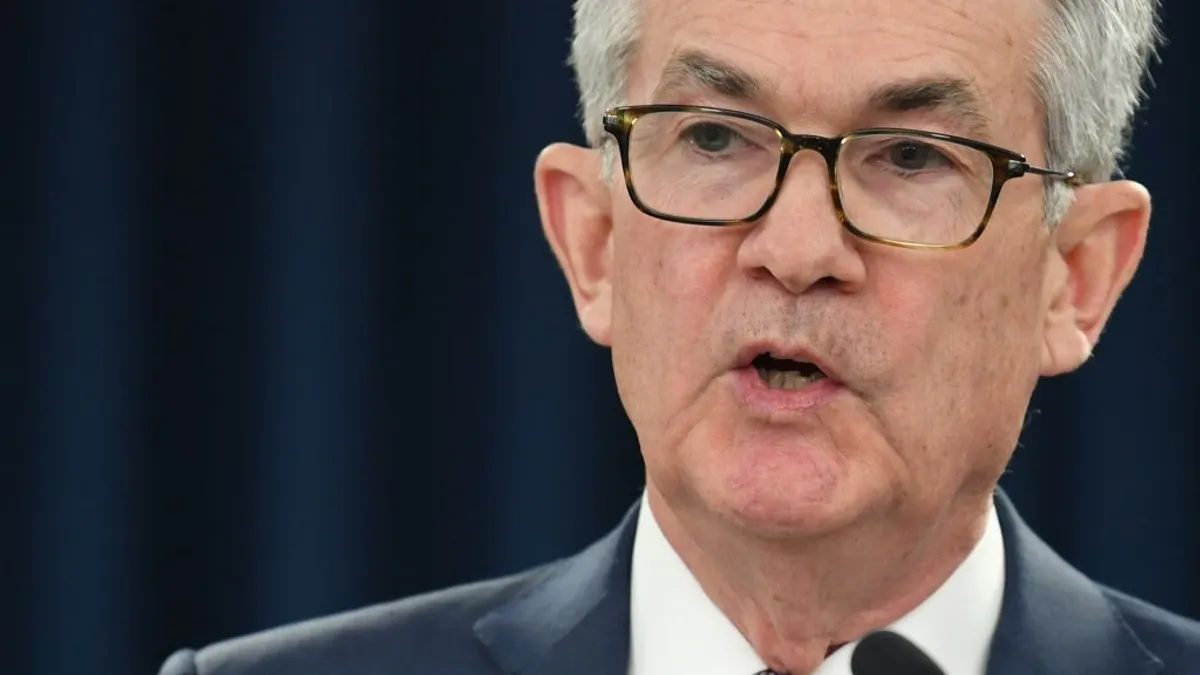The most sure-fire way for aspiring CFOs to attract the notice of CEOs and boards is to bring a strategic mindset, communicate well and showcase a background in operational finance, recruiters say.
The days of rising mostly through corporate accounting ranks are declining and taking that path can even be a detriment to the extent it makes your background seem too-tailored to your previous employer.
Coming up through the public accounting or consulting ranks, by contrast, practically sells itself, because it tells potential employers you’ve mastered the technical aspects of accounting from a best-practices standpoint.
"If you have a CFO who spent the first four or five years of their career at, say, KPMG, you know those numbers are the numbers," Peter Crist, chairman of Crist|Kolder Associates said. "You can trust the financials you're receiving."
Many leadership paths
The newer path to CFO is through investment banking. Once almost unheard of, about a quarter of CFOs today started out working on the deal-making side of capital raising, and the percentage is bigger for those in tech.
"I think a lot of it has to do with having first-time founders who are wicked smart who are looking for someone who can go toe-to-toe with them on strategy," Rhoda Longhenry, a partner at technology-focused True Search, said. "Not all finance executives can do that."
Of 53 software-as-a-service (SaaS) CFOs that CFO Dive covered over the past year, almost 30% started out in investment banking. Often, they either join a company with which they worked on a deal, or they move to a company in the sector they covered.

Lanny Baker, CFO of EventBrite, is a case in point. He started out in the late 1980s researching technology companies for Donaldson, Lufkin & Jenrette, then for Morgan Stanley, and then for Salomon Brothers before jumping to the corporate side as finance head for the online job-search site Monster. From there he took leadership roles at a number of high-profile Internet companies, including ZipRealty and Yelp.
"What really prepared me was the time I spent on Wall Street," Baker said. "I got to work on [Google's] IPO and the merger of AOL and Time Warner."
Maynard Webb, a Silicon Valley veteran who was COO of eBay during its rise and today sits on the boards of Salesforce and Visa, and was chair of Yahoo!, says CFO candidates who are strong on the investment banking side but weak on operations and accounting, can be attractive from a strategic standpoint but they must be upfront about gaps others will have to fill.
“Do you have the wherewithal to actually build the operational muscle that the company really needs?” he says. “Hopefully it will be communicated during the interview process. You don’t want to find out that’s not his strength after you’re in the job. The people who are self-aware enough, as most CFOs are, would say what their weaknesses are in the interview process.”
Public accounting widest path
Outside of the tech sector, investment banking remains a relative rarity as a path to CFO. The widest path by far is public accounting and consulting.
In CFO Dive's research, just under half of all CFOs, and exactly half of SaaS CFOs, came up through public accounting and consulting. What's more, at least three-fourths of these CFOs maintain their CPA, or the United Kingdom equivalent, certified accountant designation. (View research results at the bottom of this story).
That's the path taken by Ken Stillwell, CFO of PegaSystems. Early in his career at PriceWaterhouseCoopers, he provided audit advisory services and then M&A advice to his corporate clients, many of them outside the United States.
"I think that really helped me see different companies of size and verticals and international cultures," he said. "I think that gave me a good acceleration in my finance acumen."
With public accounting or consulting experience, recruiters say, candidates can tout the rigorous training they got in the latest, most thorough set of standards companies must meet.
"It's like Navy Seals or Delta Force," Shawn Cole, managing partner of Cowen Partners, said. "You just know they're good at their job."
Although the traditional path through corporate finance departments is declining, developing your skills on the operational side of finance remains a crucial benchmark, and for many CEOs and their boards, it's a must-check box for any candidate.
"Operating finance skills is the key measurement phrase CEOs and boards use," Crist said.
In CFO Dive's research, just over a quarter of CFOs come up through the traditional corporate finance route, about half the percentage that come up through public accounting and consulting.
Among Fortune 500 companies, operational finance is a must, and preferably with another big company, Tricia Clifford, a consultant in Spencer Stuart's financial officers practice, said.
"The most common route for a public company CFO is a previous role in divisional finance, or a deputy finance role," said Clifford, who co-authored a survey on Fortune 500 CFO job paths. "About 80% of externally hired CFOs took that as their primary route up. Behind that is FP&A, treasury and accounting and control. That's a big shift from accounting and control being the primary foundation for a public company CFO."
To get that operating finance background, Crist said, you want to work as a group or division controller.
Outward facing experience key
Most important after operational finance skill is strategic vision, and recruiters point to FP&A experience as the way to show you bring that to the table.
"Some CFOs might join a company right out of business school in an FP&A role," Crist said.
Anup Singh, CFO of Illumio, says his days working in FP&A proved crucial for his career.
"The first milestone for me is when I decided to move into FP&A," he said. "I did FP&A at companies like 3Com, Excite@Home. That experience really gave me a great sense of how a company actually operates. You're in the business, interacting with customers, partners and vendors, understanding the tactical and strategic aspects of operating a business and managing a P&L."
The last of the big three skills CEOs and boards want to see, communications, can be tricky for finance professionals to the extent their focus has been on honing their computational chops.
Marsha Smith, CFO of Siemens USA and Siemens Mobility, said the need to get up to speed on communication skills quickly took her out of her comfort zone, but the experience marked a turning point.
She pointed to a key moment in 2004, when her supervisor tapped her to write a letter asking a client to accept an expensive change order. "I thought, 'I don't know how to write a letter to the customer,'" she said. "I'm a finance person; I know spreadsheets, I know calculations."
She enlisted the help of colleagues from the company's legal and technical teams and got the change order agreed to.
"That was the beginning of my external-facing experience," she said. "Monthly payments had to be coordinated. Asking for additional funds from the customer had to be coordinated. All of that got me ready for the role."
Now that she's finance chief, she ensures her team members receive the same valuable, external-facing experience she received so they can develop into effective communicators.
That effort has been rewarding, to her and her team members, and beneficial to Siemens, she says. At a key meeting some years ago, one of her team members out-negotiated a competitor for a three-party deal in part because of her communications fluency. Whenever the client asked for a change in terms, her team member was able to translate the request into its impact on pricing immediately, something the competing finance person couldn't do.
"We realized just how wonderful our way of working is," said Smith, who's been with Siemens for 24 years. "Making our finance people learn contract terms, scope of work terms, understand how to handle risk management, and how to talk to customers externally proved to be an advantage."
The three skills recruiters say employers want — operational finance, strategic agility and communication fluency — are particularly valuable today, recruiters say, because CFOs, buffeted by the business impact of the pandemic, are expected to retire at a faster-than-usual clip once thy steer their companies through the crisis.
"We're seeing many surprises in this environment," Crist said. "In the next two to three years, we'll see a bunch of surprise retirements. People in their late 50s and early 60s will say, 'You know, I've been in this chair a long time; I'm going to go early.' We think there will be demands on companies to have a successor ready."
Webb says his preference is to cultivate talent from within and let people rise to the CFO chair.
"In finance, more than most functions, the best of all worlds is you have a strong enough team and a deep enough bench that you don't have to do outside recruiting," he said. "I have a great love and affection for people growing in their careers. The most free resource we all have is our own potential, and the more we work on that, the more we can do."
Alfred Lin, a partner at venture fund Sequoia Capital, said there's no reason companies shouldn't take a risk on a first-time CFO if the candidate brings the right mix of skills and the CEO is sufficiently strong to navigate the environment.
"If you have a CEO who is not inspiring confidence in the investor base, then you want a second or third-time CFO," said Lin, who's been a key investor in Airbnb, DoorDash, and Instacart. "Other than that, I don't think first-time and second-time CFOs are all that different. I wouldn't hire a CFO [with multiple experiences] if all they did was the same thing over and over again."



















